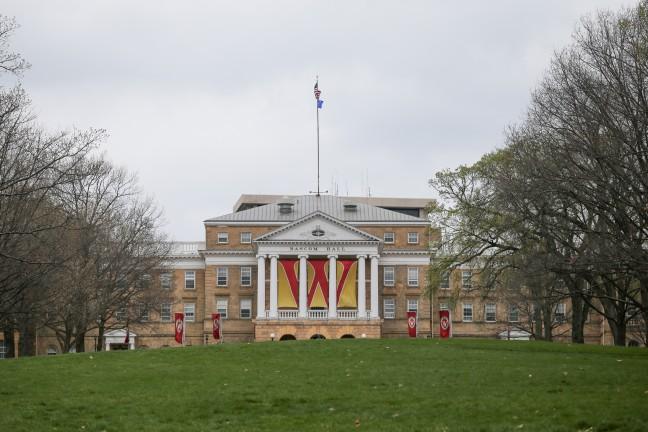
Chancellor Biddy Martin highlighted systematic pay increases and other proposed solutions as methods to improve the University of Wisconsin’s retention of faculty at a UW System committee’s meeting Monday.
As the university with the lowest full-professor salary among its 12 peer schools and with attractive positions offered by other universities to its faculty members each year, retention has emerged as a major issue for UW.
The Competitive University Workforce Commission, to which Martin made her presentation, was appointed earlier this year by UW System President Kevin Reilly to examine similar concerns among all Wisconsin state universities.
According to Martin, the systematic pay increases, called a pay plan, would use funds appropriated by the state Legislature to maintain faculty without making cuts to other budget areas.
UW Provost Paul DeLuca said UW currently uses promotional pay increases, but a faculty member can only receive such an increase twice: when they ascend from assistant to associate professor and then to full professor.
“We have been developing the promotion increases as a strategy for preempting the challenges we face when faculty fall behind in salary. We are working on better communication and coordination of our efforts to provide salary and research funding for faculty with outside offers,” Martin said in an e-mail to The Badger Herald.
However, Martin said under the current format, UW loses ground to other universities who have even a modest pay plan.
UW System Vice President for Academic Affairs Tom Anderes also said in times of economic decline, other universities would try especially hard to recruit quality faculty from some of UW’s higher ranked departments.
Martin also said UW is working on advancing spousal hiring, but DeLuca said this would merely be a reallocation of internal funds that would not give UW the “new” money they would otherwise have with a pay plan.
Several faculty members, including UW psychology professor Seth Pollak, were mentioned by Martin as examples of individuals currently entertaining offers from other competitive schools, including Harvard University.
While Pollak said in an interview with The Badger Herald that he is happy at UW and does not intend to leave, the chancellor’s points illustrate the high demand from prestigious universities for UW’s faculty. In the 2008-09 academic year alone, there were 94 cases of faculty being recruited by another institution and 54 cases of faculty who were highly likely to be recruited. Of those actively recruited, UW retained 73 percent.
In an interview, DeLuca noted some initiatives UW has undertaken this semester to increase faculty salaries, which would require a 16.5 increase to meet the peer group’s median salary, including faculty promotions and salary increases after a professor has already reached tenure.
Previous meetings of the commission determined UW is competitive with benefits, but Martin said fringe benefits are not as relevant to younger faculty because they are more likely to move around during their career in higher education. Benefits such as retirement and health care packages also appeal more to older professors.












